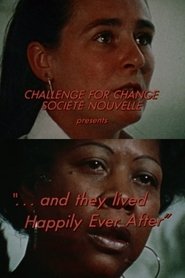Len Chatwin
Executive ProducerProducer
-
Birthday
-
Zodiac Sign
-
Genres
0
Total Films
Also known as (female)
Place of Birth
-
Birthday
-
Zodiac Sign
-
Genres
0
Total Films
-
Also Known As (female)
-
Place of Birth
-
Birthday
-
Zodiac Sign
-
Genres
0
Total Films
Also known as (female)
Place of Birth
-
Birthday
-
Zodiac Sign
-
Genres
0
Total Films
-
Also Known As (female)
-
Place of Birth
actor
0 Works
producer
15 Works
director
16 Works
writer
0 Works
other
1 Works
Temiscaming, Québec
Temiscaming, Québec is the story of a town's struggle to survive after its main source of employment, the CIP mill, closed down. Part I tells what steps the workers, townspeople and ex-CIP managers took to reopen a mill co-owned and co-managed by the workers; Part II explains the new corporate ownership of the mill, how it works, and its growing pains.Year:
1976
Some People Have to Suffer
Bridgeview, British Columbia is less than 30 kilometres from downtown Vancouver. The residents were promised a sewer system in 1953, but more than 20 years later the sewer system has yet to be built.Year:
1976

Our Dear Sisters
Alanis Obomsawin, a North American Indian who earns her living by singing and making films, is the mother of an adopted child. She talks about her life, her people, and her responsibilities as a single parent. Her observations shake some of our cultural assumptions.Year:
1975

...and They Lived Happily Ever After
A critical look at marriage and motherhood through the views of a group of young girls and boys and a group of married women, contrasted with glossy advertisements extolling romance, weddings and babies. The film ends with the thought that the solution could be growing up before marriage.Year:
1975

Like the Trees
This short film is told in the first person by Rose, a Métis woman from northern Alberta who has left a difficult life in the city to rediscover her roots by returning to her Woodland Cree community. Rose reveals the racism, isolation and health issues she faced when trying to make a life for herself outside her home community, and how she is able to help others now that she has reconnected to her culture. The film is part of a 1970s series of eleven films title Working Mothers by producer/director Kathleen Shannon, exposing inequality for women in accessing education, childcare, and equal pay. These films led to the creation of Studio D at the National Film Board, the world’s first feminist production studio.Year:
1974
Luckily I Need Little Sleep
Kathy worked as a nurse in Greece and then came to Canada. She and her family live in northern Alberta, where they are developing a farm. Kathy works outside the home as a nurse, sews for the children, maintains the house, and helps with the farm work.Year:
1974

Tiger on a Tight Leash
Cathy, mother of three, is a university department head in a Maritime city. She speaks of the insecurity she experiences because of unpredictable day care arrangements, and of the reflection of the same difficulty in the work of her married students. 'They don't work as creatively as they could.' Part of the Working Mothers series produced by Kathleen Shannon as part of the Challenge for Change program at the National Film Board of Canada.Year:
1974

The New Alchemists
This short documentary profiles a community engaged in developing sustainable living methods, including food production and small-scale solar and wind technology, on a farm in Massachusetts in the 1970s. Well before sustainability was a mainstream concern, these prescient innovators attempted to create a vision of a greener, kinder world. "Think small," say the New Alchemists. "Look what thinking big has done."Year:
1974

Cree Hunters of Mistassini
An NFB crew filmed a group of three families, Cree hunters from Mistassini. Since times predating agriculture, this First Nations people have gone to the bush of the James Bay and Ungava Bay area to hunt. We see the building of the winter camp, the hunting and the rhythms of Cree family life.Year:
1974

Regina Telebus
This short film from 1973 offers a report on Regina's successful experiment with dial-a-bus, a flexible service midway between a bus and a taxi. The idea is to provide passengers with door-to-destination transportation at an affordable cost.Year:
1973
Promises, Promises ...
This short film explores the problems and potentials of small towns in the Drumheller Valley region of Alberta. Citizen participation in the growth and improvement of the region is encouraged through the Task Force on Urbanization and the Future. However, the Task Force initiative is eventually curtailed, as unemployment and uncertainty enter the picture. The film provides an interesting portrait of a region in socio-economic flux.Year:
1973

Labrador North
This short documentary looks at the government relocation of the Labrador Inuit and the effects on their culture and social structures.Year:
1973

A Bus - For Us
After repeated attempts to obtain service from the public transportation authorities, these suburban Ottawa residents finally decided to do it themselves.Year:
1972
A Memo from Fogo
A retrospective look at Fogo Island, Newfoundland, four years after the original Newfoundland Project series was made. This is an assessment of the value of the programs initiated, and an illustration of what film can do to help spark new life in a fading community.Year:
1972
V.T.R. Rosedale
Using video recording technology, the citizens of Rosedale, once referred to as "the rear end of Alberta" by a frustrated citizen, pulled themselves together as a community. They formed a citizens' action committee, cleaned up the town, built a park, and negotiated with the government to install gas, water and sewage systems. And all this happened within five months.Year:
1970